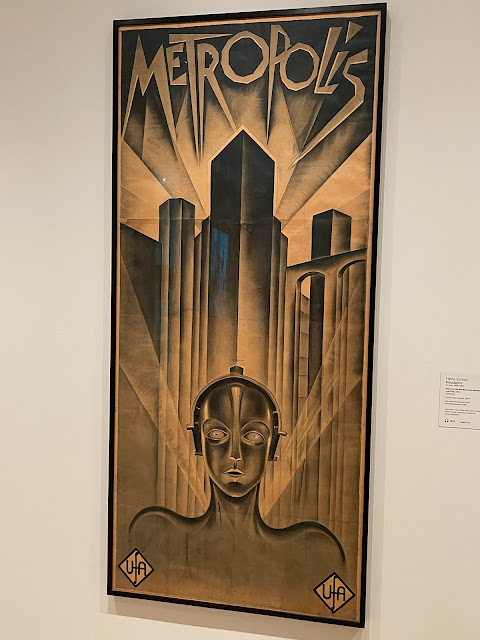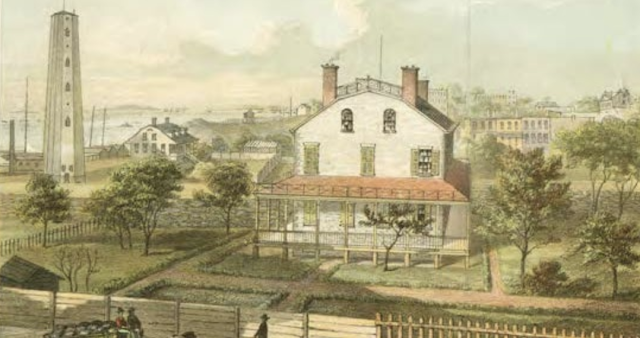I remember reading, many years ago, about a battle fought by Napoleon at the start of the 19th Century, when things seemed to be going Napoleon's way. (Though they had not yet named a pastry after him.)
The part that stuck with me was a simple--maybe too simple--statement. That war in Napoleon's time was more like war in Caesar's time--1800 years earlier--than it was during World War I, just 100 years later. Life and human development is like that sometimes. As Comrade Lenin once said, "There are decades where nothing happens; and there are weeks where decades happen."
In a nutshell, it doesn't matter whether the nut is genetically-modified or not--that's why it pays to study history. It's hard to know what things mean unless you know what they meant. Living only in the here and now with no wider context means lurching from high to low with very little terra firma to balance on. Everything is a paroxysm. Everything is a "tale told by an idiot, full of sound and fury, signifying nothing."
I returned to my abnormally civilized precinct of the Upper East Side last Friday--and amid all the too-stupid encroachments of the modern non-thinking world--there are still vestiges of intelligent life about.
Someone in city government has--before we get to the intelligent part--decided that too many people were throwing their trash and used heroin needles down into the sewer grates that dot city streets, two sewers every thirty feet or so. They've decided that since much of this detritus ends up in the East River (it's not a river actually, it's a tidal estuary) they would stencil in large white letters on either side of every sewer grating, "THIS IS NOT A TRASH CAN. DO NOT DUMP TRASH."
There's nothing wrong with that sentiment. It's just that they've made the sign about trash uglier even than the trash itself. The city has enough noise and noisome pollution that it doesn't need more. But it seems it's de rigueur to clean up a mess by adding a mess.
Perhaps the sanitation people have taken a cue from the highway people. In order to unsnarl traffic snarls that last two hours a day, the highway people re-build, widen and re-route roadways and take about two decades to do it. From a rise-over-run point of view, I'm 97-percent sure they cause more mishegas than they unravel. But think of all the people they've employed. Good union jobs.
The other more recent blights upon my quiet little neighborhood
--an area dotted with actual farms two centuries ago, where you will occasionally still see a wooden house pre-dating the 1845 great New York fire. After that time, wooden houses were banned in New York below 155th Street. In their stead and with the legalization of marijuana, vape shops are now as plentiful on New York's residential streets as used-condoms off the shores of Coney Island.
I live in a neighborhood bordered by public schools, parochial schools, pre-schools and two prestigious all-girls private schools. There are more vape shops per-capita than there are hotdog stands at Yankee Stadium.
Of course, along with new, irksome New York, there are still a few places that remind me of the New York I knew, the New York that once was.
I ran over to Madison Avenue early Saturday morning, in the rain, gripped with fear that I had failed, once-again, to get my wife a mother's day gift. Of course, I had rationalized, she's my wife, not my mother. But I didn't want Phyllis Schalfaly and the CEO of Hallmark cards coming down on my ignoring-mandated-traditions ass.
So, in the rain I walked to a high-end "drug store," named after a Ukrainian city, Zhytomyr, that was founded by the Rus, I suppose, in 814--around the time my cable went out and I'm still waiting for "Spectrum" to fix it.
Zhytomyr, Anglicized to Zitomir, started as a normal drug store, probably by Ukrainian immigrant Jews. As the neighborhood got more and more rarefied--so did the store. Now their entire first floor is filled with potions and unguents in small fancy bottles, thousands of them, each retailing for about $100.
The ladies who wait on you have thick Bronx accents from days of yore--like when Toody and Muldoon protected the borough in car 54. They are decked out in expensive casual clothing from more recent days--probably bought steeply discounted, because who pays retail, unless it's unguents you're after.
They commute in by express bus from Staten Island, 90-minutes each way, and they are accessorized by large pieces of jewelry their husbands bought them from Fortunoff's--a long-gone Fifth Avenue jewelry store for the working class--whose spokeswoman was the Bronx-born Betty Joan Perske, who later became Lauren Bacall.
These ancient ingenues wait on you--especially if you present as a well-heeled local (which I guess I am) with the deference of a Vizier in ancient Arabia. No question is too dumb, no need is too esoteric.
I finally bought enough of the aforementioned lotions to have paid my rent not long ago and then was sent up to the mezzanine where another Miss Havisham acolyte would engage in the hour-long task of removing the tags with her gel-manicured nails, and wrapping my gifts with an assortment of Fontainbleu-style wrapping paper that went out of form when Jimmy Carter left office.
Finally, my job done, I returned to the rain and headed uptown, also on Madison, to one of New York's last neighborhood bookstores: The Corner Book Shop.
They only have a couple hundred adult books there. But I was being sent to pick up a children's book my wife had ordered for our incipient grandchild.
This is a bookstore of the old sort. Where the great books of our day are placed out on large tables. Many of the books have heavy paper inserts jutting out from between their pages. "Signed Copy," they read. Because half The New York Times' best-seller list is written by authors who live within a cherry-pit-spit of the joint.
The staff, of course, is better read than the doctoral class up at Columbia University. But they only show it by their complete diffidence while you are waiting and their judgments when you buy something not originally written in Latin.
Beyond the books, the most delightful part of the store, is the little girls in tall rubber boots with duck or frog faces on them against the rain, and polka-dot rain slickers with matching bucket hats. They're invariably being read to by well-accoutered grandmothers in their old-world finery, as their yoga-panted daughters take a moment to find something that will look impressive on the bookshelves in their expansive foyers.
I picked up the book for my un-arrived grandchild and headed the mile to my cinnamon-toast warm apartment to let myself and my erudite packages dry out.
New New York and Old New York.
The old doesn't get old.
And the new doesn't stay new.





No comments:
Post a Comment